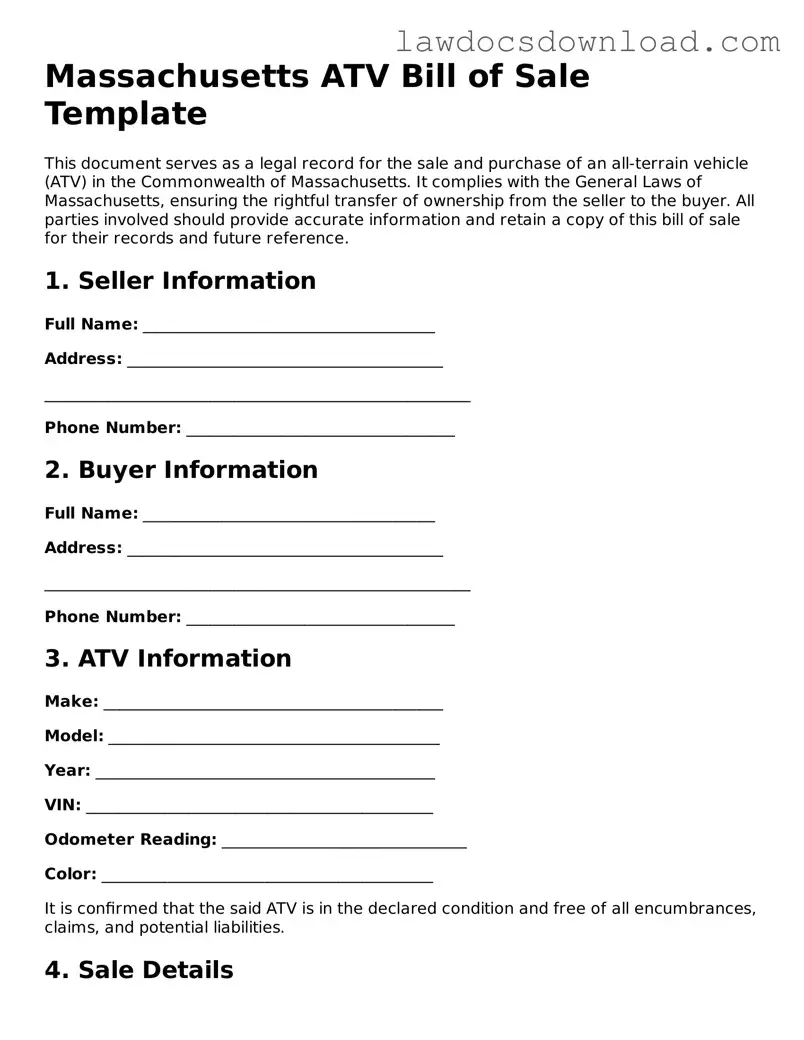Massachusetts ATV Bill of Sale Template
This document serves as a legal record for the sale and purchase of an all-terrain vehicle (ATV) in the Commonwealth of Massachusetts. It complies with the General Laws of Massachusetts, ensuring the rightful transfer of ownership from the seller to the buyer. All parties involved should provide accurate information and retain a copy of this bill of sale for their records and future reference.
1. Seller Information
Full Name: _____________________________________
Address: ________________________________________
______________________________________________________
Phone Number: __________________________________
2. Buyer Information
Full Name: _____________________________________
Address: ________________________________________
______________________________________________________
Phone Number: __________________________________
3. ATV Information
Make: ___________________________________________
Model: __________________________________________
Year: ___________________________________________
VIN: ____________________________________________
Odometer Reading: _______________________________
Color: __________________________________________
It is confirmed that the said ATV is in the declared condition and free of all encumbrances, claims, and potential liabilities.
4. Sale Details
Sale Date: ______________________________________
Sale Amount: $__________________________________
This acknowledgment establishes that the buyer has provided the full agreed-upon payment to the seller. The seller affirms that the ATV is sold "as is" without any expressed or implied warranties beyond those stated within this document.
5. Signatures
Both the buyer and the seller affirm that all the information provided in this bill of sale is accurate to their knowledge. Signing this document binds both parties to its terms and conditions.
Seller's Signature: _______________________________ Date: __________________
Buyer's Signature: _________________________________ Date: __________________
Additional Provisions
Any disputes arising from this agreement will be resolved within the jurisdiction of Massachusetts. This document can only be amended in writing with the mutual consent of both parties.
This template is designed to provide a comprehensive framework for the sale of an ATV in Massachusetts. It is advised for both parties to review all the details and conduct their due diligence before completing the sale. This document does not constitute legal advice. Consulting with a legal professional is recommended for any questions or concerns regarding the sale or transfer of personal property within Massachusetts.

